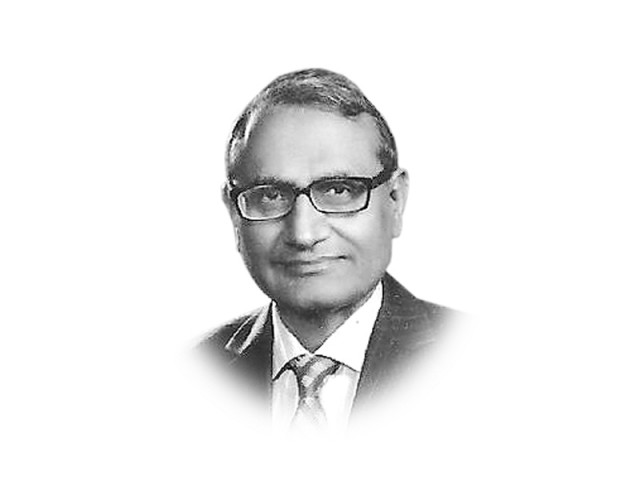Velvet divorce
Sitting in Bratislava, I kept wondering why the divorce in our case had to be so violent.

pervez.tahir@tribune.com.pk
Two decades ago, they were together as Czechoslovakia. In 1992, elections returned Vaclav Klaus and Vladimir Meciar as Czech and Slovak leaders. Negotiation began on various forms of devolution but eventually, the two decided to part ways. Neither the public, nor the president of the Czech Republic at the time, Vaclav Havel, were ready for it.
In July 1992, Slovakia declared independence. For the next six months, their respective elected leaders, Vaclav Klaus and Meciar, negotiated the terms of separation, which included the vexed subject of the division of assets, especially gold reserves. Troops were also moved. The first day of 1993 saw the peaceful emergence of the two states. There was no foreign intervention, no military operation, no public violence, no refugees, no charges of exploitation, no demand for public apology. It was instantly dubbed a “velvet divorce” following the 1989 “velvet revolution”, to mark the end of the Communist rule. “Velvet” denotes that both events were not violent. Under the Austro-Hungarian Empire, both shared a history of oppression. The end of that empire brought them into a voluntary union in 1918, despite cultural and economic differences.
Economically, the Czech part was better off with a 20 per cent higher GDP per capita. Some Czechs felt that they were subsidising the Slovaks and the latter would grumble about the former’s dominance. There is a feeling that the Czech enjoyed a greater share of the total pie. Interestingly, opinion polls in 1993 had found the majority opinion to be against the dissolution of Czechoslovakia. Now, no one really wants to undo the divorce. One noticed a certain feeling of nostalgia in the Czech Republic about the days spent together, but none in Slovakia shared this sentiment. The Czech Republic continues to prosper as a tourist attraction, the country of Franz Kafka, Milan Kundera and Vaclav Havel. Bratislava, the Slovak capital, on the other hand, does not have an international airport. One has to go through Vienna, Austria. Alexander Dubcek was a Slovak. Immediately after the divorce, the Slovak economy shrank by four per cent. However, growth since then accelerated so fast that it was called the Central European tiger. Even after the global financial crisis, it was able to keep away from the double-dip recession spread across Europe.
After the separation, the two leaders have had unceremonious exits. Klaus, the Czech leader, is being impeached for promoting crony capitalism. In Slovakia, a citizen’s movement got rid of Meciar in 1998 for his authoritarianism. The two enjoy good neighbourly relations, cooperating in infrastructure projects, as well as military fields. There were divided families in the beginning, but a later agreement on dual citizenship has solved that problem, too. Intermarriages continue.
As a BBC journalist put it: “If breaking up is hard to do, then the Czechs and Slovaks made it look a lot easier than that, 20 years ago.” Quebec, Catalonia and Scotland see it as a model. Alex Salmond, the Scottish first minister, believes that “once the popular will is determined, constitutional discussions can be concluded in good time”. Sitting in Bratislava, I kept wondering why the divorce in our case had to be so violent.
Published in The Express Tribune, March 22nd, 2013.















COMMENTS
Comments are moderated and generally will be posted if they are on-topic and not abusive.
For more information, please see our Comments FAQ